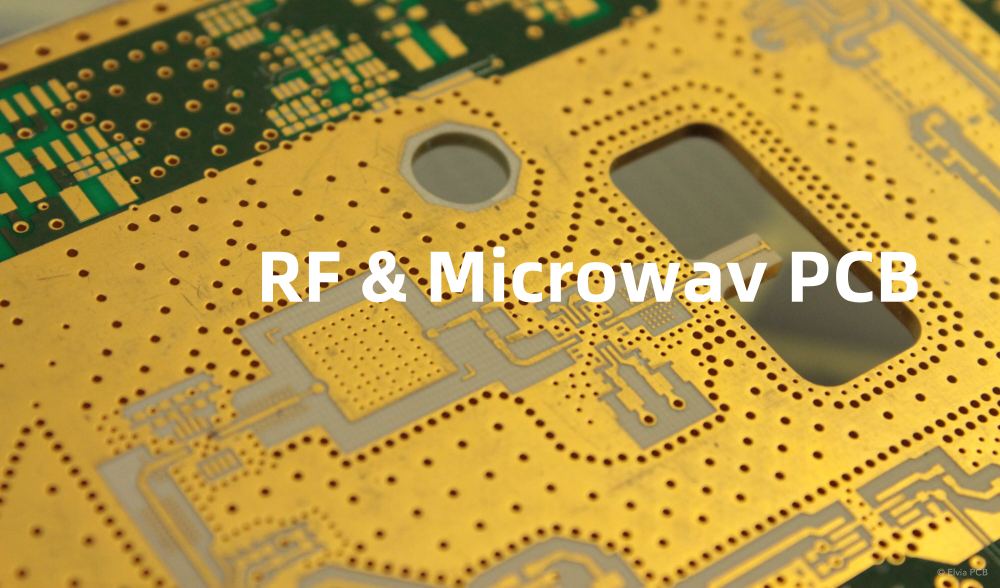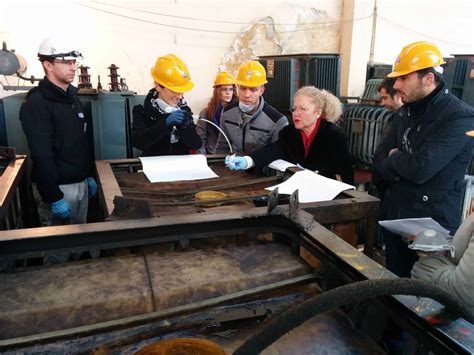Introduction to PCB Workshops
Printed Circuit Board (PCB) workshops are essential for anyone interested in electronics, whether you are a hobbyist, student, or professional. These workshops provide hands-on experience in designing, fabricating, and testing PCBs, which are the backbone of modern electronic devices. In this article, we will explore the various aspects of PCB workshops, including their importance, types, and benefits.
What are PCB Workshops?
PCB workshops are training sessions that focus on teaching participants the skills and knowledge required to create PCBs. These workshops cover a wide range of topics, from the basics of PCB design to advanced techniques for manufacturing and testing. Participants learn how to use software tools to design PCB layouts, select appropriate components, and optimize the performance of their circuits.
Why are PCB Workshops Important?
PCB workshops are crucial for several reasons:
-
Skill Development: PCB workshops help participants develop practical skills in electronics design and manufacturing, which are highly sought after in various industries.
-
Hands-on Experience: Participants gain hands-on experience working with PCB design software, fabrication equipment, and testing tools, which enhances their understanding of the subject matter.
-
Networking Opportunities: PCB workshops provide a platform for participants to meet and collaborate with like-minded individuals, fostering a sense of community and creating potential career opportunities.
-
Staying Up-to-date: As technology advances rapidly, PCB workshops help participants stay current with the latest trends, techniques, and best practices in the field.
Types of PCB Workshops
There are various types of PCB workshops catering to different skill levels and focuses:
Beginner Workshops
Beginner workshops are designed for those with little to no experience in PCB design and fabrication. These workshops cover the fundamentals of PCB technology, including:
- Basic electronic components and their functions
- PCB design principles and best practices
- Introduction to PCB design software
- PCB fabrication processes
- Basic soldering techniques
Intermediate Workshops
Intermediate workshops are suitable for those with some experience in PCB design and fabrication. These workshops delve deeper into more advanced topics, such as:
- Advanced PCB design techniques (e.g., high-speed design, EMI/EMC considerations)
- Multilayer PCB design and stackup planning
- Design for Manufacturing (DFM) and Design for Assembly (DFA) principles
- Advanced soldering techniques (e.g., surface mount technology)
- PCB Testing and debugging
Advanced Workshops
Advanced workshops are targeted at experienced professionals who want to further enhance their skills and knowledge in specific areas of PCB technology. These workshops may focus on:
- High-frequency PCB design for RF and microwave applications
- Flexible and Rigid-flex PCB design
- Advanced PCB manufacturing techniques (e.g., HDI, embedded components)
- Signal and power integrity analysis
- Advanced testing and measurement techniques
Specialized Workshops
Some PCB workshops may focus on specific applications or industries, such as:
- Automotive PCB design and testing
- Medical device PCB design and regulatory requirements
- Aerospace and defense PCB design and qualification
- Internet of Things (IoT) PCB design and prototyping
Benefits of Attending PCB Workshops
Attending PCB workshops offers numerous benefits for participants:
-
Improved Skills: Participants gain practical skills in PCB design, fabrication, and testing, which can be applied in their personal projects or professional work.
-
Enhanced Knowledge: Workshops provide in-depth knowledge of PCB technology, including best practices, industry standards, and troubleshooting techniques.
-
Increased Efficiency: By learning efficient PCB design and manufacturing processes, participants can save time and resources in their future projects.
-
Professional Growth: Attending PCB workshops can lead to career advancement opportunities, as participants demonstrate their commitment to learning and staying current with industry trends.
-
Networking: PCB workshops provide a platform for participants to connect with peers, experts, and potential employers in the electronics industry.

PCB Workshop Formats
PCB workshops can be conducted in various formats to suit different learning preferences and schedules:
In-person Workshops
In-person workshops are traditionally held at a physical location, such as a training center, university, or conference venue. Participants attend sessions in a classroom setting, with hands-on labs and direct interaction with instructors and peers.
Advantages:
– Face-to-face interaction with instructors and peers
– Hands-on experience with equipment and tools
– Immersive learning environment
Disadvantages:
– Limited accessibility for participants in remote locations
– Higher costs associated with travel and accommodation
– Fixed schedule and duration
Online Workshops
Online workshops, also known as webinars or virtual workshops, are conducted over the internet using video conferencing and collaboration tools. Participants can join from anywhere with a stable internet connection.
Advantages:
– Increased accessibility for participants worldwide
– Flexible scheduling and self-paced learning
– Lower costs due to no travel or accommodation expenses
Disadvantages:
– Limited hands-on experience with physical equipment
– Potential for technical issues and connectivity problems
– Reduced face-to-face interaction and networking opportunities
Hybrid Workshops
Hybrid workshops combine elements of both in-person and online formats, allowing participants to choose their preferred mode of attendance.
Advantages:
– Flexibility for participants to attend either in-person or online
– Increased accessibility and reach
– Opportunities for both hands-on experience and remote learning
Disadvantages:
– Complexity in managing both in-person and online participants simultaneously
– Potential for disparities in learning experience between in-person and online attendees
Planning and Preparing for PCB Workshops
To maximize the benefits of attending a PCB workshop, participants should plan and prepare adequately:
-
Research: Investigate the available workshops and choose one that aligns with your skill level, interests, and goals.
-
Prerequisites: Ensure that you meet any prerequisites or requirements stated by the workshop organizers, such as prior knowledge or software proficiency.
-
Equipment: If the workshop requires specific tools or equipment, make sure you have access to them or arrange for their provision through the organizers.
-
Time Management: Allocate sufficient time for the workshop, taking into account the duration, travel time (if applicable), and any additional study or practice required.
-
Active Participation: Engage actively in the workshop by asking questions, participating in discussions, and completing hands-on exercises to reinforce your learning.
PCB Workshop Resources
There are numerous resources available for those interested in PCB workshops and further learning:
Online Platforms
- Coursera: Offers online courses on PCB design and electronics, often in partnership with universities and industry experts.
- Udemy: Provides a wide range of PCB design and fabrication courses, catering to various skill levels and specializations.
- edX: Hosts online courses and programs from top universities, including topics related to PCB design and electronics.
Professional Organizations
- IPC (Association Connecting Electronics Industries): Offers training and certification programs in PCB design, fabrication, and assembly standards.
- IEEE (Institute of Electrical and Electronics Engineers): Provides workshops, conferences, and resources related to PCB technology and electronics.
- SMTA (Surface Mount Technology Association): Organizes workshops and events focused on surface mount technology and PCB Assembly.
Online Communities
- PCB Design Forums: Engage with the PCB design community, ask questions, and share knowledge on forums such as EDABoard, PCB Design Forum, and Electrical Engineering Stack Exchange.
- Social Media: Follow PCB Experts, companies, and enthusiasts on platforms like LinkedIn, Twitter, and Facebook to stay updated on the latest trends and events.
Frequently Asked Questions (FAQ)
1. Are PCB workshops suitable for beginners with no prior experience?
Yes, there are many PCB workshops designed specifically for beginners, covering the fundamentals of PCB design and fabrication. These workshops provide a solid foundation for those starting their journey in the world of PCBs.
2. How long do PCB workshops typically last?
The duration of PCB workshops can vary depending on the format, content, and depth of coverage. Workshops can range from a few hours to several days or even weeks for more comprehensive programs.
3. Are there any prerequisites for attending PCB workshops?
Prerequisites for PCB workshops depend on the skill level and focus of the workshop. Some workshops may require basic knowledge of electronics or proficiency in specific software tools, while others are designed for beginners with no prior experience. It’s essential to review the workshop description and requirements before enrolling.
4. Can I attend PCB workshops online?
Yes, many PCB workshops are now offered online, allowing participants to join from anywhere with an internet connection. Online workshops provide flexibility and accessibility, although they may have limitations in terms of hands-on experience with physical equipment.
5. Are there any certifications associated with PCB workshops?
Some professional organizations, such as IPC, offer certification programs in PCB design, fabrication, and assembly standards. These certifications demonstrate a participant’s knowledge and proficiency in specific areas of PCB technology and can be valuable for career advancement. However, not all PCB workshops are directly associated with certifications.
Conclusion
PCB workshops are invaluable for anyone interested in electronics, providing hands-on experience, in-depth knowledge, and networking opportunities. Whether you are a beginner seeking to learn the fundamentals or an experienced professional looking to specialize in a specific area, there is a PCB workshop tailored to your needs. By attending these workshops, participants can enhance their skills, stay updated with industry trends, and contribute to the ever-evolving world of electronic design and manufacturing.
As technology continues to advance, the demand for skilled PCB designers and manufacturers will only grow. Investing in PCB workshops is a wise choice for those seeking to build a successful career in the electronics industry or pursue their passion for PCB design and fabrication. So, explore the available workshops, prepare adequately, and embark on an exciting journey into the world of PCBs!
| Workshop Type | Description | Benefits |
|---|---|---|
| Beginner | Covers fundamentals of PCB design and fabrication | Provides a solid foundation for those starting in PCBs |
| Intermediate | Delves into more advanced topics and techniques | Enhances skills and knowledge for those with some experience |
| Advanced | Focuses on specific areas of PCB technology for experienced professionals | Allows for specialization and further skill enhancement |
| Specialized | Caters to specific applications or industries | Provides targeted knowledge and skills for particular fields |
| Workshop Format | Advantages | Disadvantages |
|---|---|---|
| In-person | Face-to-face interaction, hands-on experience, immersive learning | Limited accessibility, higher costs, fixed schedule |
| Online | Increased accessibility, flexible scheduling, lower costs | Limited hands-on experience, potential technical issues, reduced interaction |
| Hybrid | Flexibility in attendance mode, increased reach | Complexity in management, potential disparities in learning experience |

No responses yet